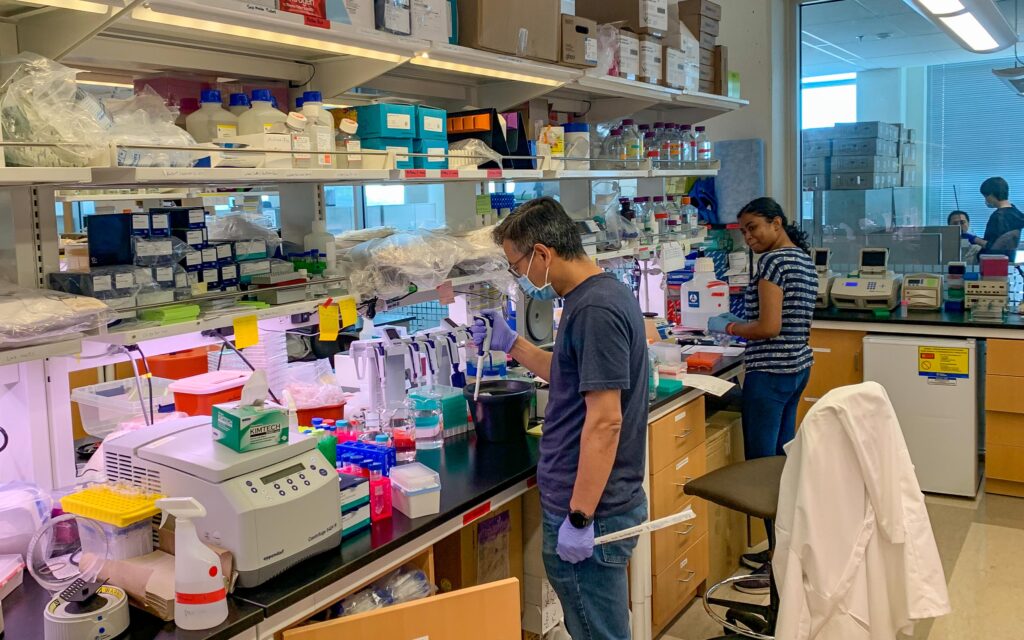Surgeon-scientists and researchers in the Department of Otolaryngology at Washington University have just been awarded $1.7 million in grants to improve understanding and treatment of head and neck cancer.
The grants will fund research to:
- explore the de-intensification of treatments for HPV-positive oropharyngeal cancer;
- identify the genomics of high risk HPV-associated and other cancers;
- understand the relationship between cancer biomarkers and race and socioeconomic factors;
- explore the use of fluorescent cancer biomarkers during surgery to facilitate more complete removal of cancer cells.
Merck award to study de-intensified cancer treatment
The largest of these awards is from the Merck Investigator Studies Program. This effort brings together a large team of head and neck surgeons and medical and radiation oncologists, led by Jose Zevallos, MD, MPH. The group will study the addition of adjuvent immunotherapy to treatments for HPV-positive oropharyngeal cancers in order to de-intensify those treatments and reduce the unwanted side affects associated with radiation therapy:
Principal Investigator: Jose Zevallos, MD, MPH
Title: Minimalist 2 Trial
What it will study: This Phase II clinical trial—called the Minimalist 2—will incorporate risk-adjusted adjuvant immunotherapy and radiation therapy as a post-surgical treatment for human papilloma virus (HPV)-positive oropharyngeal cancer. The immunotherapy will replace chemotherapy for low and intermediate-risk patients. Immunotherapy will supplement chemotherapy for high-risk patients. Post-surgical doses of radiation will also be reduced. This trial hopes to show a dramatic reduction in the severe side effects of treatment while maintaining excellent oncologic outcomes. It is the first trial to incorporate immunotherapy after transoral surgery for these cancers.
Siteman support for early-stage research
Two awards were received from the highly competitive Siteman Cancer Center pre-R01 grant program designed to support early-stage cancer-focused research. Funding for this program comes in part from Pedal the Cause.
Principal Investigators: Jose Zevallos, MD, MPH, and Ben Wahle, MD
Title: HPV genomic structural subtypes in oropharyngeal squamous cell carcinoma
What it will study: Dr. Zevallos’ lab has recently identified specific features of HPV within tumor cells that are associated with significantly lower overall survival, called “high-risk HPV genomic structures” (HRGS). While most patients with HPV-positive oropharyngeal squamous cell carcinoma survive their disease, it is difficult to predict who is likely to survive or fail treatment. The work proposed in this grant will help advance the use of HRGS as a routine cancer biomarker, and help explain why patients with HRGS have worse outcomes.

Principal Investigators: Angela Mazul, PhD, and Sid Puram, MD, PhD
Title: Predicting head and neck cancer outcomes using partial epithelial-to-mesenchymal transition biomarker
What it will study: Severe racial and socioeconomic disparities in cancer outcomes currently exist. Black patients have worse survival rates and receive lower quality treatment than white patients, even when considering socioeconomic status. This work will help develop a reliable genomic test to guide treatment decision-making in oral cavity cancer patients across diverse socioeconomic and demographic groups.
The group has developed a biomarker using RNA genetic material from oral cavity tumors that can help predict which cancers are more aggressive as well as poor cancer outcomes. This study will help to develop this innovative biomarker using a diverse cohort of oral cavity patients and help explain how this biomarker interacts with race and socioeconomic status.
NIH exploratory research grant
Dr. Puram was also recently awarded an NIH Exploratory/Developmental Grant (R21). This mechanism is intended to encourage exploratory research by providing support for the early and conceptual stages of project development.
Principal Investigator: Sid Puram, MD, PhD
Title: RNA modification and the regulation of partial EMT in head and neck cancer
What it will study: These studies will provide insight into recently described genetic regulators that have been suggested to be good predictors of poor clinical outcomes such as nodal metastasis and diminished survival. By identifying the mechanisms by which these genetic factors promote tumor development and control, this work can facilitate the development of new therapeutics that will more effectively and specifically treat head and neck squamous cell carcinoma.
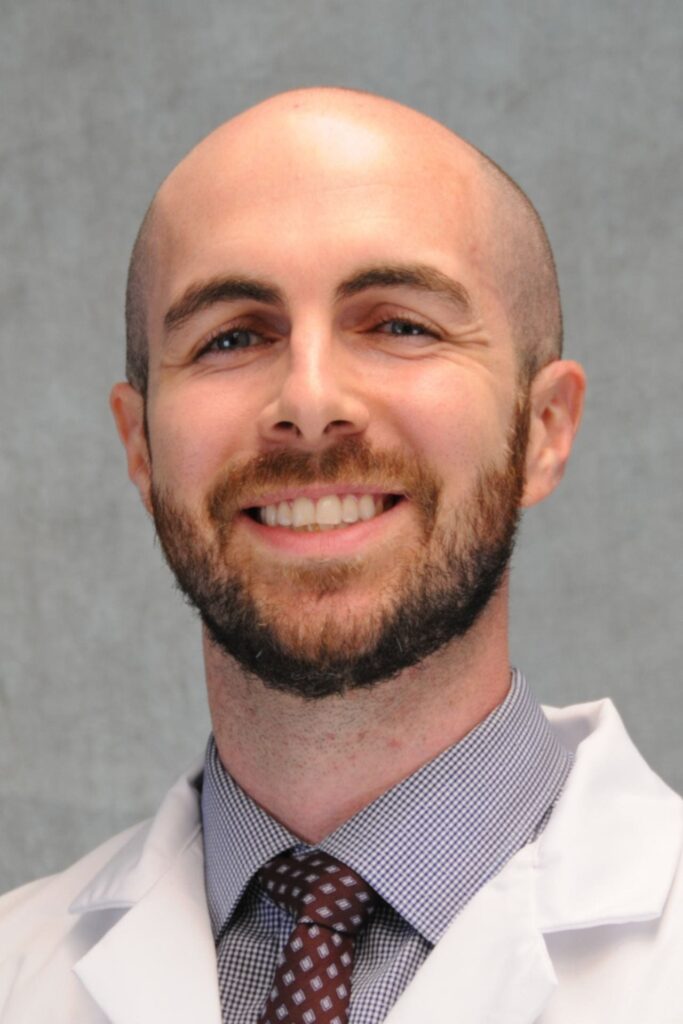
Head and neck society supports resident research
Tom Barrett, MD, a T32 research resident in the Puram lab also received a Centralized Otolaryngology Research Effort (CORE) award from the American Academy of Otolaryngology–Head and Neck Surgery Foundation:
Principal Investigator: Tom Barrett, MD
Title: Spatial Architecture of Immune Evasion in Head and Neck Squamous Cell Carcinoma
What it will study: This project will take advantage of novel RNA sequencing technology to explore how the functional state of a cancer cell relates to its spatial location within the tumor. This will allow us to better understand the mechanisms of immune cell infiltration and immune evasion in head and neck cancer.
Support for cancer visualization system extends to head and neck cancer
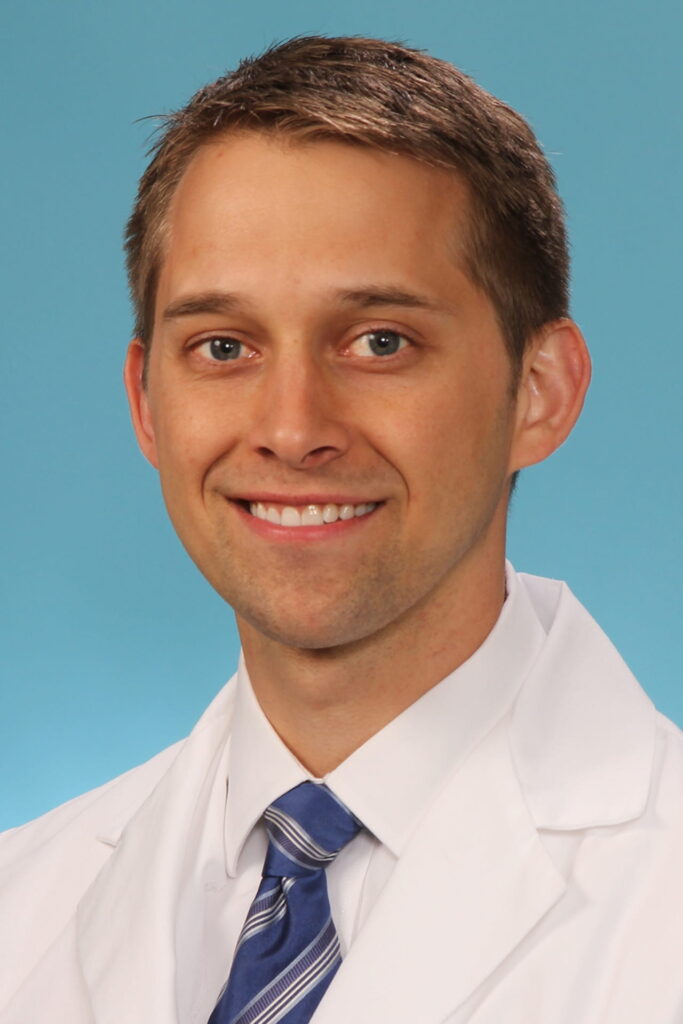
Ryan Jackson, MD, is co-investigator on a new NIH-funded project with Samuel Achilefu, MD, Michel M. Ter-Pogossian Professor of Radiology and director of the Optical Radiology Laboratory at Washington University. Dr. Achilefu has developed a cancer vision goggle system (CVG) and novel fluorescent biomarkers that allow surgeons to view fluorescent labeled cancer cells to facilitate their complete surgical removal. This unique visualization system is now being expanded to other cancer challenges.
Principal Investigator: Samuel Achilefu, MD
Title: Imaging goggles for fluorescence-guided surgery
What it will study: Dr. Jackson acquired experience using the CVG system for fluorescence-guided sentinel lymph node surgery in a pilot study in head and neck cancer patients. His role will be to help validate user guidance performance in phantom and animal studies using the CVG system for fluorescence-guided tumor resection in head and neck cancer. These studies will enable better and more complete tumor removal during surgery.
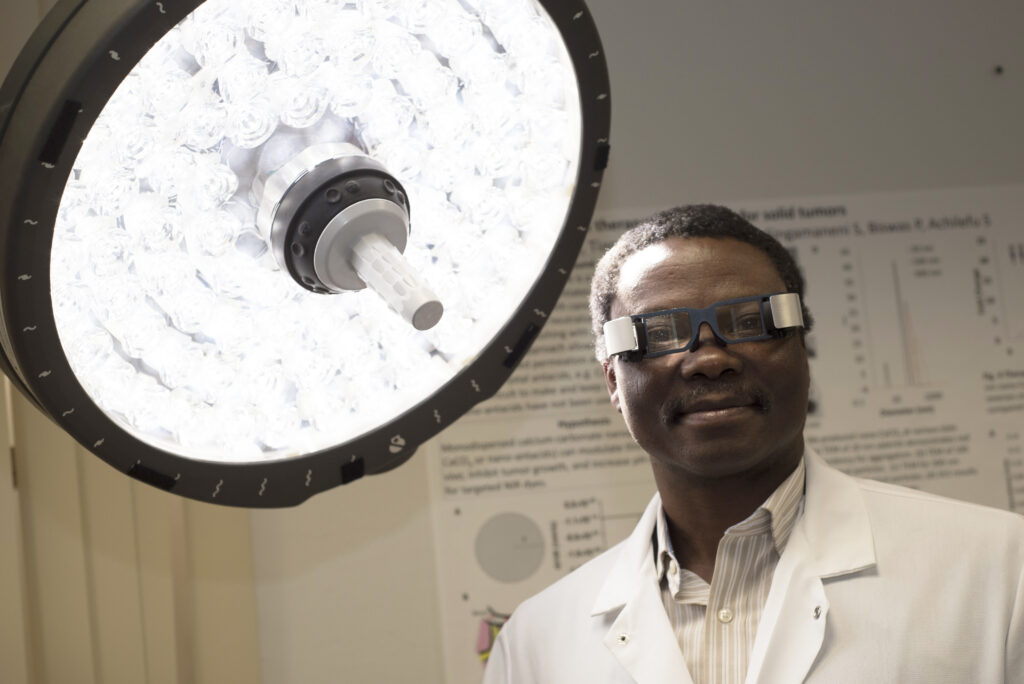
Division chief of head and neck cancer Dr. Zevallos sees the surge in new funding as a testament to the hard work of faculty, residents and staff who make up our research teams.
“These grants will result in new discoveries that truly have the potential to improve patient lives by changing the way we treat head and neck cancer, “ he said. “I am immensely proud of our division, and thankful for the support we have received from Dr. Buchman and the department, BJC Foundation, and Siteman Cancer Center. I am especially grateful to the generous donors who have contributed to the Head and Neck Cancer Research Fund. This fund allows us to generate the preliminary data that paves the way for ground-breaking research in head and neck cancer.”
